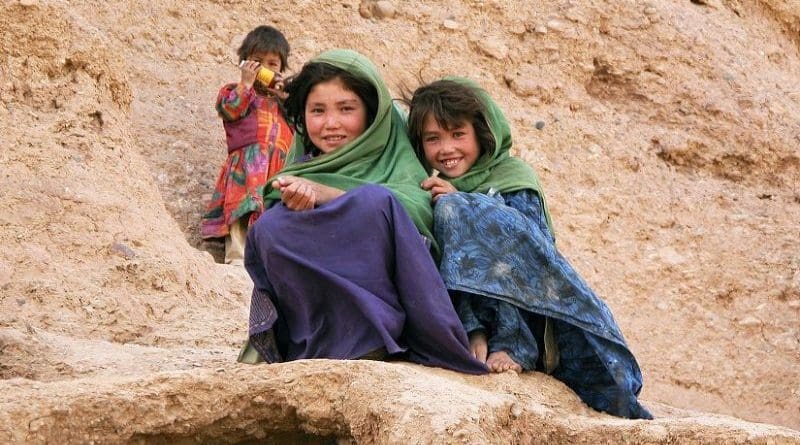Empowering Afghan Girls: A Global Responsibility – OpEd
The plight of Afghan girls seeking education has captured the world’s attention, compelling global powers to respond to this urgent humanitarian crisis. In the wake of the Taliban’s return to power in Afghanistan, Afghan girls face severe obstacles to accessing education, jeopardizing their futures and the prospects of their nation. This essay explores the role of global powers in addressing the education crisis faced by Afghan girls, emphasizing the moral obligation and diplomatic responsibilities that the international community bears.
To comprehend the gravity of the issue, it is crucial to recognize the dire circumstances confronting Afghan girls. According to UNESCO, Afghanistan has one of the highest rates of out-of-school children globally, with over 60% of girls not attending school. The situation has only worsened since the Taliban regained control of the country in August 2021. The denial of education to Afghan girls not only hinders their personal development but also perpetuates a cycle of poverty and inequality, posing significant long-term risks to Afghan society.
Education is a fundamental right and a key driver of social progress. It empowers individuals, promotes gender equality, and fosters economic growth. For Afghan girls, education is a pathway to independence and the ability to contribute positively to their communities. Denying them this opportunity is a grave injustice.
Global Powers and Their Responsibilities
Global powers, including international organizations and influential nations, have a crucial role to play in addressing the education crisis in Afghanistan. The following sections delve into their responsibilities and the actions required to make a difference.
International organizations, particularly the United Nations (UN), play a pivotal role in advocating for the rights of Afghan girls. The UN has a moral and ethical obligation to ensure that all children, regardless of their nationality, have access to quality education. Its agencies, such as UNICEF and UNESCO, have a mandate to support educational programs and advocate for the protection of children’s rights. Their efforts should focus on ensuring that Afghan girls can attend school safely and without fear of discrimination or violence.
Certain influential countries possess diplomatic leverage and economic resources that can be instrumental in addressing the education crisis. The United States, for example, has historical ties to Afghanistan and played a significant role in the country’s recent history. As a global superpower, the U.S. can exert diplomatic pressure on the Taliban to respect the rights of Afghan girls and facilitate humanitarian aid to support education initiatives.
Similarly, regional powers like Pakistan and Iran, which have historically hosted Afghan refugees, can use their influence to encourage the Taliban to allow girls to attend school. These countries have a vested interest in regional stability, and an educated Afghan population can contribute positively to that goal.
The Moral Obligation of the International Community
Beyond diplomatic and strategic considerations, there exists a moral obligation for the international community to act. All nations, regardless of their political interests, should stand together to protect the rights of Afghan girls. Education is a universal human right, and its denial constitutes a violation of the principles enshrined in the Universal Declaration of Human Rights. Global powers must prioritize this issue, viewing it not as a matter of politics but as a humanitarian imperative.
First, the Taliban’s policies and restrictions have severely curtailed girls’ rights to education. Since their return to power, the Taliban have implemented policies that ban girls from attending secondary schools and universities. These restrictions are based on their interpretation of Sharia law and have had devastating consequences for the education of Afghan girls.
Second, security concerns and threats further deter girls from attending school. The Taliban’s control over large parts of the country has created a hostile environment where girls face harassment and violence when trying to access education. Without adequate protection, parents are reluctant to send their daughters to school, fearing for their safety.
Lastly, Afghanistan’s education system lacks the necessary resources and infrastructure to accommodate all children. Decades of conflict have left schools in disrepair, with a shortage of qualified teachers and educational materials. Global powers must support efforts to rebuild and strengthen the education system to ensure that it can provide quality education to all, including girls.
Balancing diplomacy with the protection of Afghan girls’ rights requires skill and sensitivity. Engaging with the Taliban necessitates a pragmatic approach that seeks to influence their policies without causing harm to vulnerable populations. Striking this balance requires careful negotiation and collaboration with regional actors.
Conclusion
The education crisis facing Afghan girls demands urgent attention and action from global powers. Education is not a privilege but a fundamental human right. The international community, including international organizations, influential countries, and concerned citizens, must work together to ensure that Afghan girls can access quality education safely and without discrimination. The moral obligation to protect their rights transcends politics and geopolitics. By empowering Afghan girls through education, we invest in a brighter future for them and for Afghanistan as a whole.

